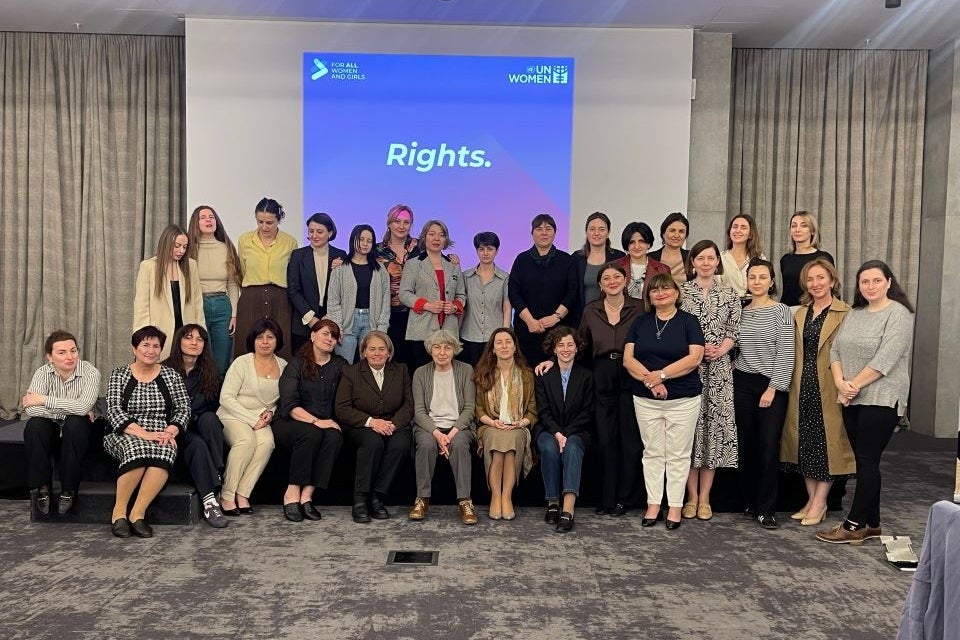CSOs involved in social mobilization exchange experiences with one another
Date:

Representatives of the non-governmental sector working on the grassroots level in the regions of Georgia using social mobilization methodology and approaches, recently met to discuss the challenges and prospects in the changing legislative and political environment. 21 participants gathered for the two-day event, held in Tbilisi on 18 and 19 March.
UN Women, in collaboration with partner CSOs, has been implementing community projects in Georgia since 2010 using the social mobilization approach. This methodology has the unique ability to empower rural women and support their personal and professional development. With the help of their newly acquired professional skills, women become engaged in decision-making processes and advocacy initiatives and create partnerships between themselves, the local government and their communities to drive positive change in villages and society.
As a result of the implementation of social mobilization approaches, many women have joined self-help groups in rural areas. Their activism and enthusiasm have inspired others through examples of volunteering, laying the foundation for significant changes to improve the daily lives of those in their communities. In addition, with the help of social mobilization, women started small businesses or became self-employed, providing a source of income for their families. It is particularly noteworthy that many of them have emerged as community leaders and have become motivators and role models for other women.
“Social mobilization is also important because it opens people’s eyes broadening their horizons not only to what is written in the project [objectives] but also to many other issues,” said Marina Tabukashvili, co-founder of the Taso Foundation, one of the first organizations to use the social mobilization methodology in Georgia. “[When people] change, the possibilities within them begin to activate. This methodology made me understand what it means to harvest the rewards without planting the seeds. For example, the project didn’t include the creation of youth groups at all, but when the young people saw what the women were doing, they wanted to do the same. To me, this was a great result. You should think not only about what are the goals and objectives of the project but also about what are the community needs.”
It is noteworthy that recently, UN Women has also been using elements of the social mobilization approach in the context of the Women, Peace and Security agenda. The event discussed how the methodology can be fully utilized in this area of work and also integrated into the field of climate change and disaster risk reduction. This perspective will offer additional opportunities to women affected by conflict or disasters.
“For many years, the Kakheti Regional Development Foundation has been working with women living in rural areas,” noted Iza Bekauri, the Foundation’s director, “but the social mobilization component has provided new opportunities for both us and these women as well. Many women, especially in the Pankisi Gorge, engaged in community activities outside their households, met other women and were able to socialize. In addition, I should especially highlight their participation in gender-sensitive budgeting processes. After engaging in the social mobilization initiatives, women started participating in village meetings for the first time and began to voice the needs of the community and advocate to resolve them.”
At the end of the event, participants discussed the sustainability of initiatives implemented through the social mobilization methodology and ways to achieve it. They discussed success stories where, after completing social mobilization projects, local women continue to work independently for the benefit of villages and communities.
The event was part of the UN Women project “Accelerating Implementation of the Women, Peace and Security Agenda in Georgia”, supported by the UK Government.